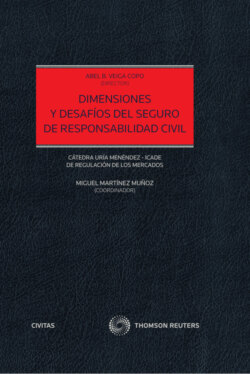Читать книгу Dimensiones y desafíos del seguro de responsabilidad civil - Abel B. Veiga Copo - Страница 32
На сайте Литреса книга снята с продажи.
III. THE BREAST IMPLANTS CASE 1. FACTS
ОглавлениеThe French company Poly Implant Prothèses (PIP) produced breast implants which were marketed across Europe by a Dutch undertaking. The breast implants were certified, in accordance with an EU Directive29, by TÜV Rheinland, a very large German provider of technical surveillance services. TÜV Rheinland carried out several inspections on the premises of PIP, all announced in advance, and renewed the certificates required. Some years later the French agency for the safety of medical products found out that PIP had filled the breast implants with cheap industrial silicone which carried the risk of a premature rupture. According to estimates, around 400.000 women were affected across Europe, 5.000 in Germany30. The French agency informed its counterparts in other Member States, and the German authority advised doctors who had inserted such implants that they should notify the patients concerned. As a consequence, thousands of women across Europe underwent surgery to have the defective breast implants replaced. They are now seeking compensation for the costs incurred and the loss sustained.
Unfortunately, the manufacturer PIP went insolvent. The women now sue TÜV Rheinland and the French subsidiary of Allianz, the insurer of PIP, relying on a direct claim provided by French insurance law. The action against TÜV Rheinland depends inter alia on whether the inspection obligations under the Directive on medical devices31 are not only meant to facilitate the EU-wide marketing of the breast implants, but also intended to protect individual recipients of the breast implants. This has been affirmed by the Court of Justice in a first decision32. It was relevant for the application of § 823(2) BGB which determines the basis of liability of TÜV Rhein-land. After further clarification by the German Federal Court33, the case is still pending. It might end up with a judgment in favour of the plaintiff, provided that the lower court, on remand, will assess a negligent conduct by TÜV Rheinland34. In substance, this amounts to the question whether a provider of technical surveillance services, entrusted with the right to issue certificates of conformity under an EU instrument, has to carry out inspections at the manufacturer’s premises without giving prior notice. Where such an obligation is posited, its non-performance will likely be classified as negligent.
In the present context it is the action filed against the French subsidiary of Allianz that matters. In accordance with the duty under French law, PIP had taken out liability insurance with a French insurance company which was later acquired by Allianz. However, a term of the insurance contract concluded by the predecessor of Allianz with PIP confined insurance cover to damage occurred in France. The Court of Appeals of Frankfurt where the case was pending, decided to submit prejudicial questions to the Court of Justice. It asked the Court in particular whether the limitation of cover to the domestic market constituted a discrimination on grounds of nationality as prohibited by Article 18 of the Treaty on the Functioning of the European Union (TFEU).
